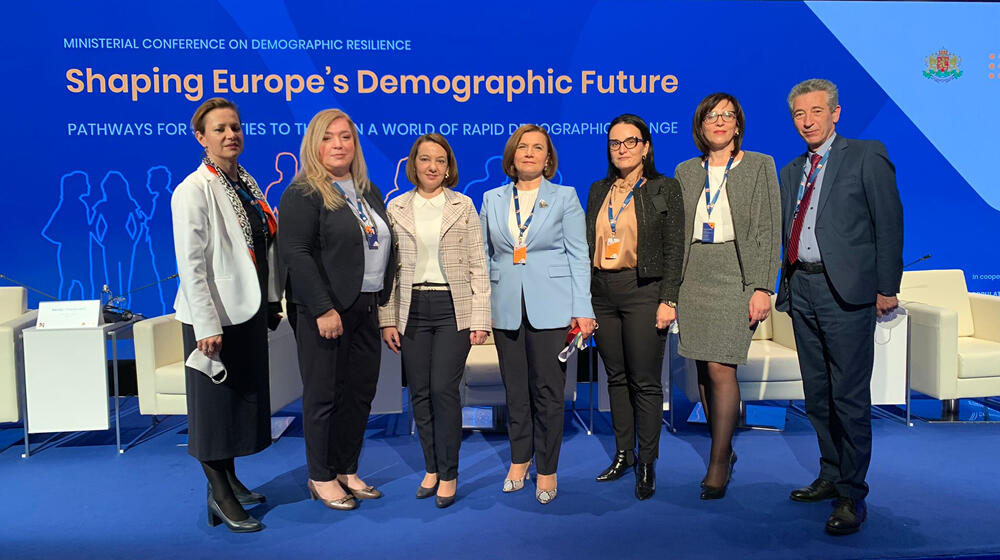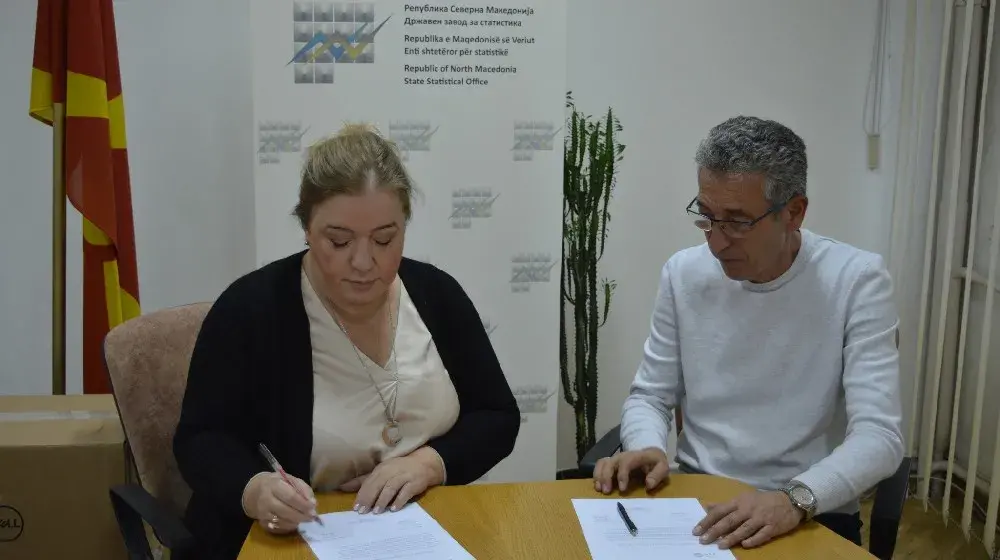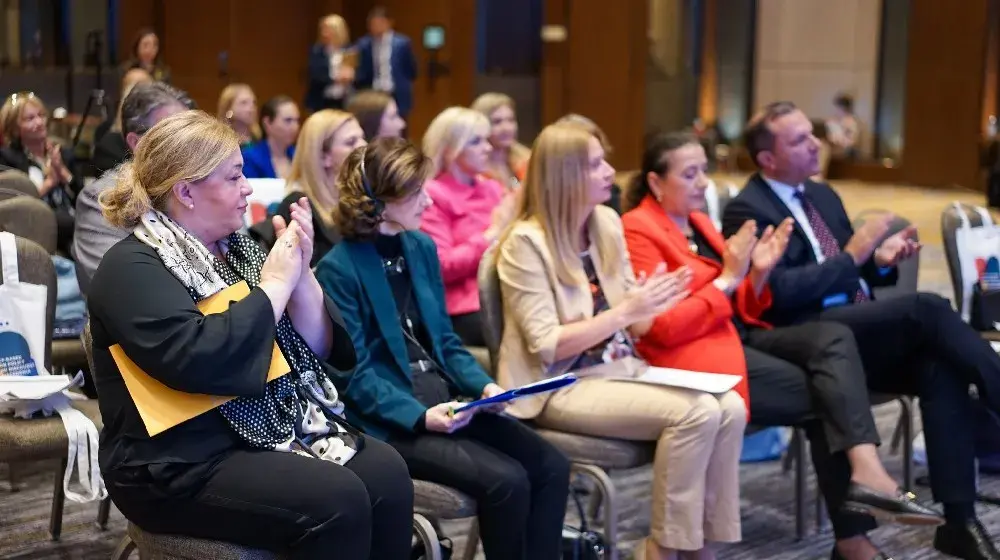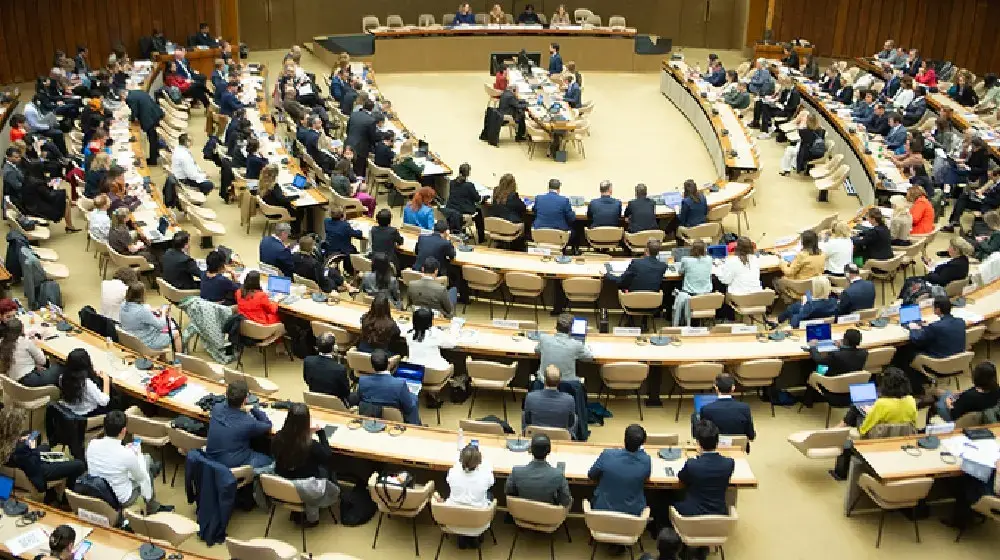Skopje, 2 December 2021 - On December 1 and 2, 2021 a Ministerial Conference "Shaping the Demographic Future" was held in Sofia, Bulgaria where a number of high-level government officials, leaders and experts from Europe and Central Asia discussed the strengthening of the capacities of the countries to respond to the region's profound demographic change.
Many countries in Europe and Central Asia are experiencing rapid demographic changes: people have fewer children and live longer, and many are leaving their countries to seek opportunities elsewhere. The societies are ageing and, in many cases, becoming smaller, especially in Eastern Europe where low fertility rates are complemented by high rates of external migration.
At the conference organized by the UNFPA – United Nations Population Fund, and the Government of the Republic of Bulgaria, under the auspices of the President of the Republic of Bulgaria, also participated a delegation from the Republic of North Macedonia. The delegation consisted of: the Minister of Labor and Social Policy – Mrs Jagoda Shahpaska, the Director of the State Statistical Office – Mr Apostol Simovski, the Chairwoman of the Safe Motherhood Committee – Mrs Ana Daneva Markova, the Head of the UNFPA Office in North Macedonia – Mrs Afrodita Shalja-Plavjanska and other representatives from different fields.
The main topics of the conference were: population ageing, fertility, gender equality, family planning, youth aspirations, revitalization of rural areas, financing of social policies and the connection between demography and democracy.
A Decade of Demographic Resilience and the "Sofia Alliance" was promoted at the conference. Promoting the Decade of Demographic Resilience 2022-2032 encourages the countries to anticipate and understand how the population is changing and to develop responses to mitigate potential adverse effects and take full advantage of the opportunities that also come with the demographic changes.
The essence is to understand that demographic trends are influenced by a complex set of social, cultural, economic and political factors and the answer should be sought in a comprehensive policy where the person with his rights and choices will come first.
The "Sofia Alliance" is a platform for exchanging successful models and testing innovative solutions to achieve the purposes of the Decade of Demographic Resilience. It brings together the governments and the policymakers with the leading experts, think-tank organizations, the civil society, the private sector to seize opportunities for demographic change in fields such as aging, migration, rural revitalization, and youth empowerment, financing social policies, supporting families, gender equality, enabling people to have as many children as they want.
Key points from the addressees of the delegation of North Macedonia:
"By investing in the rights, skills, opportunities and living conditions of Roma, countries can strengthen their overall human capital. They can create more demographically resilient societies," said Nesime Salioska, a Roma rights activist, at the opening of a ministerial conference on Europe's demographic future in Sofia.
"Involvement of people with disabilities, especially women and children, and providing opportunities for their inclusion in the field of education, health, local services and financial support is our priority. We are working together with other ministries because a multi-institutional approach is needed to address all issues that are extremely important to these people," said the Minister of Labor and Social policy Jagoda Shahpaska, a panellist at the second day of the Ministerial Conference on Europe’s Demographic Future organized in Sofia.
"The best way to solve the demographic changes when it comes to fertility is to allow people to have as many children as they want, to remove barriers, because it should be a choice of people with respect for human rights and with a comprehensive and holistic approach, "said Dr Ana Daneva Markova, the Chairwoman of the Safe Motherhood Committee, a panellist on the second day of the Ministerial Conference on Europe’s Demographic Future organized in Sofia.





